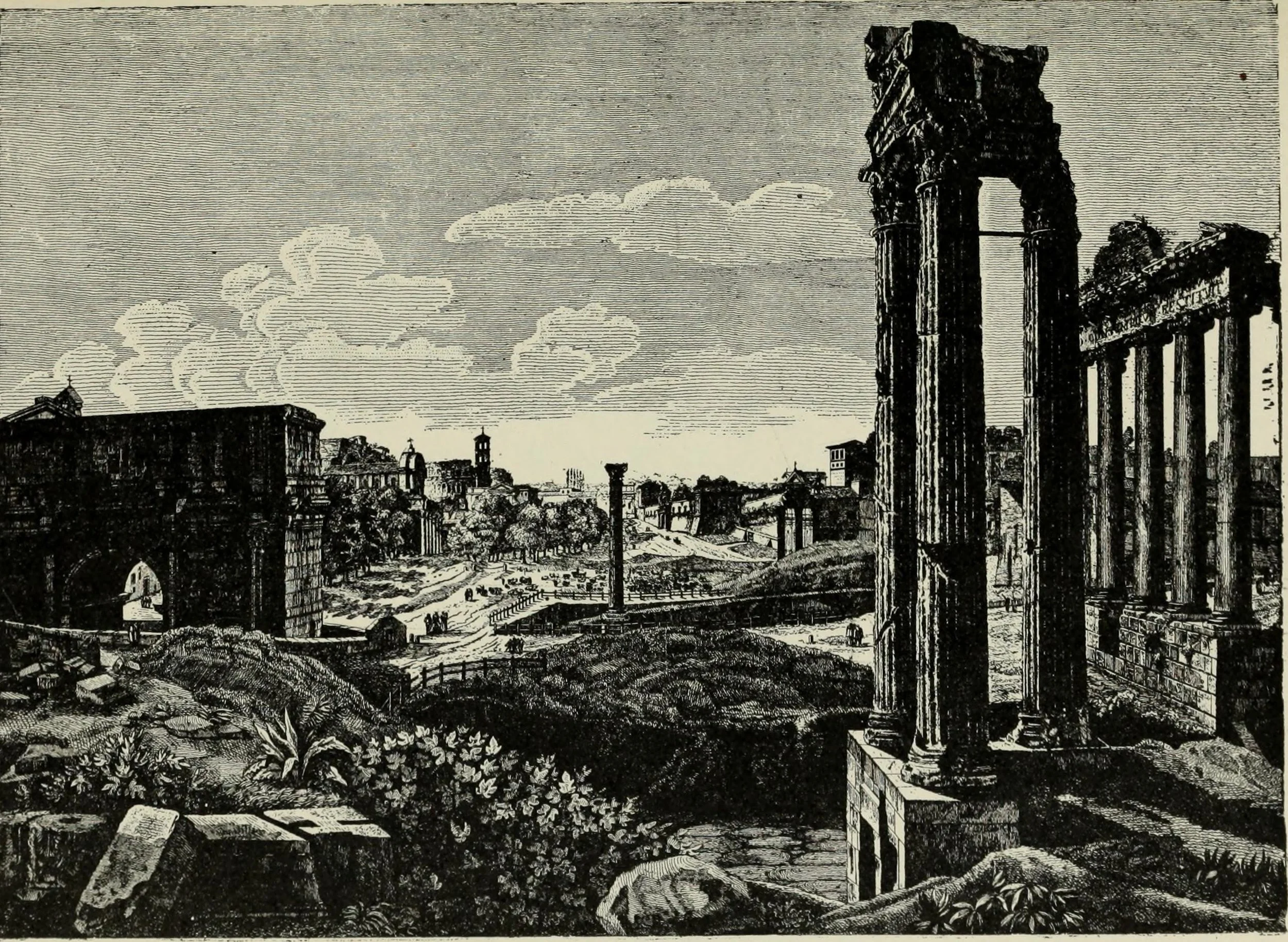This week, while looking up some information for a textbook I’m copyediting, I came across this beautiful poem written in the 11th century by a French theologian (and later archbishop) named Hildebert of Lavardin. When he wrote it, around 1100, Rome was home to only about 30,000 inhabitants, living among the ruins that had once housed 1 to 2 million.
de Roma
The city now is fallen; I can find
No worthier epitaph than: “This was Rome.”
Yet not the flight of years, nor flame nor sword
Could fully wipe away its loveliness …
Bring wealth, new marble and the help of gods
Let craftsmen’s hands be active in the work—
Yet shall these standing walls no equal find,
Nor can these ruins even be restored.
The care of men once built so great a Rome,
The care of gods could not dissolve its stones.
Divinities admire their faces carved,
And wish themselves the equal of those forms.
Nature could not make gods as fair of face
As man created images of gods.
A decade and a half or so prior to Hildebert’s visit, the city had again been sacked, this time by the Normans, who set it ablaze and destroyed significant portions of it. Gregorovius, a German historian writing in the 19th century, described the outcome as follows: "When both flames and the tumult of battle had subsided, Rome lay a heap of smoking ashes. ... The city was now terribly impoverished, and even the churches were devoid of ornament. Mutilated statues stood in the ruinous streets or lay in the dust amid the relics of baths and temples. Hideous images of saints remained here and there in the basilicas, which were already falling into decay, and attracted the spoiler by the gold which was possibly still affixed to them by votaries."

